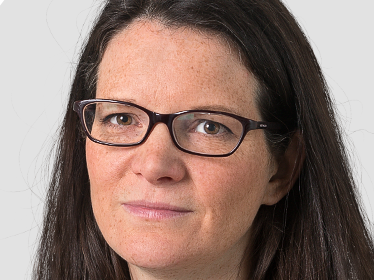
Daily Mirror political editor Pippa Crerar said journalists must not let the Government “brush what’s happened under the carpet” following the Covid-19 crisis, saying it may attempt to do so following the “undoubted success” of the vaccine rollout.
Crerar, who jointly broke the story that Dominic Cummings had travelled from London to Durham during the first lockdown with Guardian journalist Matthew Weaver, said the Government will be “desperate to reset the narrative” following the pandemic and talk about issues like its “levelling up” agenda and the benefits of a global Britain.
Speaking at a virtual Women in Journalism panel for International Women’s Day on Monday, Crerar said: “This Prime Minister in particular is very good at stating ‘we need to move on’ and stonewalling questions at press conferences or the outside, saying basically ‘we’ve had enough of this issue, let’s move on’ and telling us what we should have had enough of.
“I think it’s really important and I’m going to be putting a lot of energy into making sure that we don’t just move on from the coronavirus crisis because there’s been a happy ending with the vaccinations – that we don’t forget all those people that died and we don’t forget the lessons that need to be learned to make sure that we can deal with something like this again and that we as a country are prepared for it.”
[Read more: Ofcom says no further action required over Emily Maitlis Cummings monologue]
Crerar reflected that media from across the political spectrum were largely “very supportive” of the Government’s response to Covid-19 before the first lockdown last year, initially giving it the benefit of the doubt.

Daily Mirror front page on 13 March 2020
But she pointed to the Mirror’s front page on 13 March which asked “Is it enough?” of the Government’s response. The UK did not enter lockdown for a further ten days.
“At that time we were singled out as maybe being too questioning and maybe the media all needs to get on board with the Government strategy and all the rest of it,” Crerar said. “But we continued to ask questions and then it very quickly became clear that that wasn’t enough and the Government announced the first full lockdown.”
She said the media subsequently became more questioning overall “of everything that we were told” which involved a “steep learning curve”, especially as political journalists had to grapple with the overlap with the science beat.
The initial coronavirus press conferences were “really hard”, she said, because Parliament shut down for a month in an extended Easter recess creating a “vacuum really in terms of accountability of the government, where the media was occupying almost the role of the opposition”.
Crerar accused the team then behind the scenes at No 10 under top adviser Dominic Cummings and director of communications Lee Cain of creating a “belligerent relationship with the media”, but said coronavirus forced Cain to call a “truce”.
“And from that point on, it was easier, though it was very difficult if you’re that type of operative to completely change your approach to things,” she said.
Of the new No 10 operation which came into force after Cain and Cummings left in November, Crerar said: “They’re a much more professional operation and that’s become easier to get access to information. It’s still hard, often, but they are more transparent and you at least get the feeling they are being grown-ups about it and not always descending into politics. It happens a lot, but not all the time.”
Asked if she felt any responsibility for a relaxation in the public’s adherence to lockdown rules after publishing the story that Cummings had travelled from London to Durham against advice people “should not be visiting family members who do not live in your home”, Crerar said the responsibility lay with him alone.
“We thought about and talked about this quite a lot before we published,” she said.
She added: “My response has always been no because if you were to blame anybody for that shift in behaviour then you blame the people that took the actions, in this case, Dominic Cummings.
“We felt it’s incredibly important in terms of the public interest to be able to expose that level of hypocrisy that was going on at the top of Government and that outweighed anything else for us when we ran the story.”
Email pged@pressgazette.co.uk to point out mistakes, provide story tips or send in a letter for publication on our "Letters Page" blog
